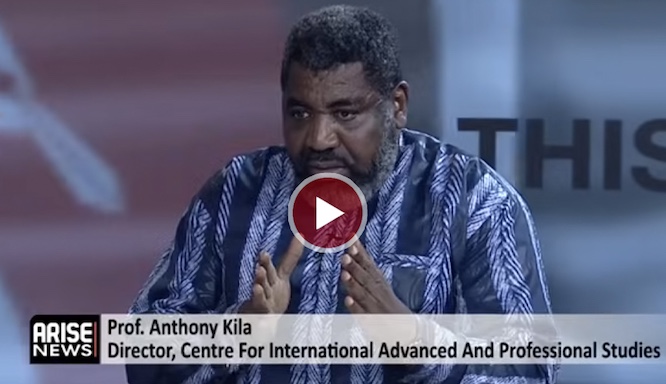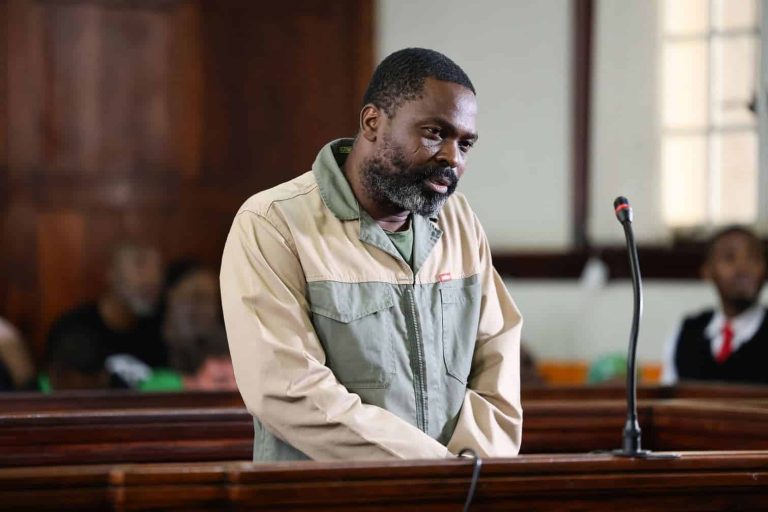

Professor Anthony Kila, Director at the Centre for International Advanced and Professional Studies, has said President Emmanuel Macron’s political challenges in France reflect the natural trajectory of long political careers, which “always end in tears.”
Speaking on ARISE News on Sunday, Prof Kila described Macron’s decision to recall former Prime Minister Sébastien Lecornu, who resigned just four days earlier, as “an act of desperation to restore stability in the middle of chaos.”
“What comes to mind immediately is the old saying that all political careers end in grief,” Kila said. “Macron was once the golden boy everyone liked, with a fascinating personal life and reformist energy but now, clearly, he’s in trouble. There’s chaos, he’s lost the magic, and the golden days are gone. Like every long political career, it tends to end in tragedy and tears — and Macron is on his way there.”
He explained that Macron’s move to bring back Lecornu was an attempt to reintroduce calm amid political uncertainty.
“In the middle of the chaos and uncertainty, he tried to bring in stability — that’s why he brought back a stable hand,” Kila said. “But because things are falling apart and the centre cannot hold, you have what we call political whiplash. This is what happens when the magic is gone.”
According to Kila, this pattern is common among leaders who have stayed in power too long.
“Once you understand that political careers, especially long ones, always end in tears, you’ll know it’s inevitable,” he said. “Margaret Thatcher ended in tears; many others did. We simply welcome Macron to that stage.”
Kila added that one key lesson from France’s political system is its resilience and collective sense of national responsibility.
“In the parliamentary system, people go in and out of power easily. You can be Prime Minister today and a minister or ambassador tomorrow,” he explained. “It’s a European sense of nationhood not adversarial like the Anglo-Saxon model. When problems arise, people don’t walk away completely. They stay and help hold the nation together. That’s something we should learn from.”
Turning to international affairs, Prof Kila also discussed recent remarks by US Senator Ted Cruz, who accused the Nigerian government of aiding the persecution of Christians. He urged the Nigerian government to avoid reactive denials and instead engage the issue with calm, reasoned diplomacy.
“We must not respond with knee-jerk reactions,” he said. “It’s natural for patriots to defend their country, but the sensible approach is to seek clarification. Ask him for proof of what he’s saying. If it’s false, refute it with evidence not with anger or pride. And if there’s truth in it, fix the problem.”
He argued that Nigeria’s leadership must demonstrate through action — not words — that it is not complicit in religious violence.
“Government must show by action that it’s not abetting any form of genocide,” Kila stressed. “If the government is helpless, it should seek help — not just issue blanket denials.”
Prof Kila added that while some may see foreign sanctions against corrupt or complicit Nigerian officials as external interference, they could actually help strengthen accountability.
“If Nigerian leaders can’t be punished at home, it’s good if they’re punished abroad,” he said. “It’s not really a loss of sovereignty — it’s a gain in discipline. Since some of our elites prefer to live and invest abroad, perhaps that’s where they’ll learn accountability.”
On domestic governance, Kila criticised the handling of the transition at the Independent National Electoral Commission (INEC), calling it “poorly managed” and “pedestrian.”
“I’m not impressed with how the INEC transition was handled,” he said. “We knew the chairman’s tenure was ending, yet the process looked disorganised. Appointing an acting chair for barely 24 hours before naming a substantive one doesn’t reflect serious management.”
Commenting on the new INEC chairman, Professor Joash Amupitan, Kila said that while his credentials are solid, his vision remains unclear.
“He’s qualified on paper,” Kila observed. “But I’ve searched for his public positions or writings on electoral reform — there’s nothing to indicate a clear vision. When we appoint people to major institutions, we should know their philosophy, their outlook. Otherwise, we keep picking from a closed chocolate box.”
He emphasised that INEC’s credibility challenge remains its biggest test.
“The new chairman must understand that politicians in Nigeria have a propensity for criminality — ballot snatching, vote rigging, forgery,” Kila said. “He needs to think like a bank director who’s managing crime risk. The goal is to make it impossible to subvert the system.”
Prof Kila concluded that what Nigeria truly needs is not a change of personnel but a total overhaul of its electoral structure.
“There’s something pathological about how much attention we give the INEC chair,” he said. “In developed countries, no one even knows who runs elections. We need radical reform, not mild adjustments. Until we fix the structure, no chairman — professor or not — can save the system,”he said.
Boluwatife Enome



